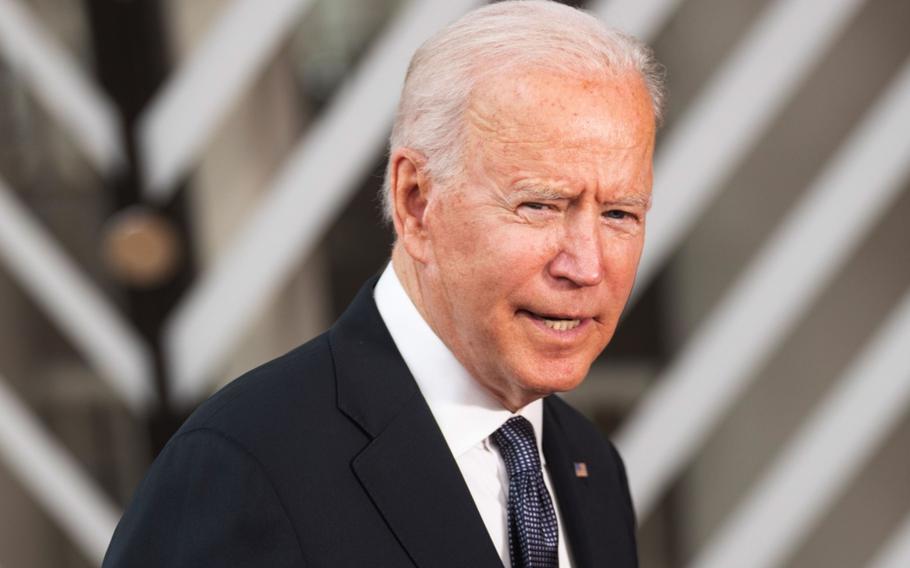As the delta variant continues to sweep through the U.S., officials are reimposing mask mandates and taking other measures to try to slow the spread. Will the renewed threat to public health stall U.S. economic growth?
I don’t think it will. But the possibility that it could is another reason for Congress not to ram through President Joe Biden’s $3.5 trillion budget proposal, which includes spending on social programs, education, health care, families and the environment. This plan would be on top of the $550 billion bipartisan infrastructure package that the Senate agreed to advance on Wednesday night.
The U.S. economy is booming, and the delta variant likely won’t change that. While the U.S. is experiencing a surge in COVID-19 cases, the fatality rate will likely become similar to the toll for the seasonal flu, since the vaccination rates among the elderly and vulnerable are very high. This, in turn, will lessen its economic impact by reducing public concern about falling seriously ill and making it unlikely that state and local governments will revive restrictions on business activity.
Moreover, people who have chosen not to be vaccinated are probably less likely to change their everyday behavior due to the delta variant’s prevalence. Since the shots are broadly effective against it, many of those who have been vaccinated will try to carry on with normal life as much as possible. Mask mandates, which could affect both groups, won’t have a big effect on the economy.
The experience of the U.K. seems to confirm this optimism. The variant’s spread in the U.S. is a few weeks behind the U.K., where spending and economic activity are holding up.
This is not to say that the surging variant poses no threat to the economy. Children still can’t get vaccinated and likely won’t be able to for several months. If school districts temporarily switch to remote learning due to outbreaks this fall, then it will be difficult for many parents to go to work.
The rare cases in which vaccinated people become seriously ill might receive more attention than they deserve, alarming many people and prompting governments in some blue states and cities to reimpose some limited restrictions on business activity.
While I don’t think these threats will change the economy’s trajectory, what if I’m wrong and damage to the economy does materialize? In that event, Congress may need to step in again with an economic relief and stimulus bill.
Because of this possibility, Congress should keep its powder dry this summer until there’s more clarity on what help, if any, is needed. Biden might not have the political capital for another pandemic relief law this fall if Congress goes forward with his $3.5 trillion spending bill next month.
The details of the package are still being worked out, but the outlines are known. Some components would provide support against another pandemic hit to the economy. For example, extra income to households would boost demand. An analysis by Moody’s Analytics estimates that in 2022 the assistance would provide around $94 billion in tax credits to families with children and about $15 billion in nutrition and housing assistance to low-income families.
But most of the spending — tax incentives for clean energy, more funding for community colleges and Medicare, universal pre-kindergarten, provisions for a new paid family and medical leave program — is poorly designed to help in the face of a COVID-related economic slowdown.
In the more likely event that the economy continues to boom during the delta variant surge, the extra cash to households and spending on social programs would needlessly worsen inflationary pressures. This would put the longevity of the recovery at risk if the Federal Reserve is forced to attend to inflation and ends up withdrawing support for the economy prematurely.
There are other reasons to oppose the spending package. Rather than pour more money into Medicare, Congress should fix its underlying flaws. Mandatory paid family leave could make it harder for some lower-income women to find jobs if employers are reluctant to hire them. The details of new universal pre-K, child care assistance and climate policies should be better understood, debated and improved.
And major social programs should have at least some bipartisan support, if for no other reason than to ensure their longevity and stability.
Passing the $3.5 trillion package next month along partisan lines would be a lose-lose proposition. If the delta variant only dents the economy, then the spending would elevate inflation risk. And in the unlikely event that it leads to restrictions on economic activity in some areas of the country, Biden wouldn’t have the political capital he would need to adequately respond. The president needs to adjust his plans until we see what happens in the fall.
Michael R. Strain is a Bloomberg Opinion columnist. He is director of economic policy studies and Arthur F. Burns Scholar in Political Economy at the American Enterprise Institute. He is the author of “The American Dream Is Not Dead: (But Populism Could Kill It).” This column does not necessarily reflect the opinion of the editorial board or Bloomberg LP and its owners.

President Joe Biden arrives for a European Union summit in Brussels on June 15. (Thierry Monasse/Bloomberg)